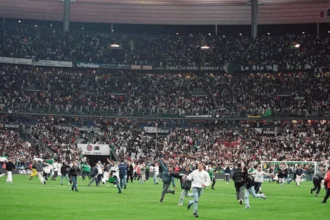The Vancouver Filipino Festival Attack caused severe wounds to the community and stunned the energetic city of Vancouver. Tragic events happened without notice on a day designated for a happy celebration. To highlight Filipino heritage, culture, and resiliency, thousands had assembled at the Lapu Lapu Festival. Families were eating, listening to music, and dancing when a car abruptly tore across East 43rd Avenue and Fraser Street, injuring several dozen people and wreaking extensive damage.
From little children to older community members, the horrific event claimed 11 lives and injured many more. As festival attendees hurried to aid the injured, witnesses detailed scenes of fear, yelling, and bewilderment. Police promptly arrested 30-year-old Kai-Ji Adam Lo, the suspect, who now faces eight counts of second-degree murder, with further charges expected. Authorities verified that Lo’s history of mental health issues was a major influence, even though terrorism was ruled out.
This sad incident has spurred a lively debate on public safety, mental health support, and event security throughout the city.
The Vancouver Filipino Festival Attack claimed victims who were?
The Vancouver Filipino Festival Attack victims reflect the variety and friendliness of Vancouver’s close-knit community. Their ages span from five years old at least to sixty-five. Although some victims’ identities are yet unknown, the city has started to grieve collectively.
Vancouver has seen emotional memorials all over, especially at the attack location. People from many backgrounds have come together to honor those lost by laying flowers, lighting candles, and penning moving words. Witnessing the catastrophe, a local woman remarked that it felt like “time had stopped” and detailed how people fervently tried to assist one another within turmoil and anxiety.
Particularly upset was the Filipino population, known for strong family ties and a supportive attitude. Many of the occupants agonized for hours calling friends and relatives to see on their safety. Quickly organized to help anyone struggling with trauma, loss, or sorrow, emotional support hotlines and community centers The great loss suffered by so many has strengthened the need of unity, understanding, and compassion in the reaction of the city.
How have authorities handled the Vancouver Filipino Festival Attack?
Following the Vancouver Filipino Festival Attack, law enforcement officials and local officials have promised major changes meant to stop such tragedies going forward. While a security threat assessment had been done before the event, Acting Police Chief Steve Rai said that no immediate hazards had been found. He did agree, nevertheless, that the episode revealed important flaws in urgently needed event safety precautions.
Vancouver officials have announced plans to erect physical barriers at significant events, completely close streets where events take place, boost police officer presence, and work more closely with mental health agencies to monitor possible hazards, so strengthening security for the next cultural celebrations. Emphasizing that quick action would be taken to properly safeguard all public events, Chief Rai said the incident was “the darkest day” in Vancouver’s history.
Apart from local initiatives, there has been a more general provincial and national debate on how to strike a balance between the open, celebratory attitude of public events and the necessity of security and safety. Inspired by the somber lessons discovered from this tragic event, event planners all around British Columbia have begun to rethink their procedures. Read another article on the FSU Shooting
After the Vancouver Filipino Festival Attack, how is the Filipino community supporting one another?
The reaction of the Filipino community over the Vancouver Filipino Festival Attack has been one of resiliency, harmony, and great compassion. Rapidly organizing groups like Filipino BC and other ethnic groups helped individuals personally touched by the catastrophe. Opening their doors, community centers provided secure environments where individuals may gather, heal, and encourage one another.
Through transportation, linguistic support, and emotional counseling, volunteers have been quite helpful to impacted families. Many churches held particular events to pray for the victims and offer solace to the bereaved people. Political leaders, including Prime Minister Mark Carney, paid their respects and solidarity by visiting the scene of the tragedy. Carney stressed in an emotive speech the nation’s united sadness as well as its dedication to supporting the Filipino population through trying circumstances.
With contributions flowing in to cover funeral expenditures, medical bills, and longer-term care services, fundraising initiatives are well under way. Together with the outpouring of love and solidarity from Canadians all over, these initiatives highlight the resiliency of the Filipino people and the larger Vancouver community.
Following the Vancouver Filipino Festival Attack, what insights emerged?
The Vancouver Filipino Festival Attack has underlined the pressing necessity of structural improvements in several spheres. One of the most urgent teachings is the great need to enhance mental health services. Ensuring that people going through mental health crises get prompt, thorough treatment before events get dangerously out of hand is now more of a priority. Healthcare executives and legislators are working together to enhance early intervention programs and crisis reaction plans.
Still another important area of concentration is event security. Although public festivities have to keep their inclusive, friendly environment, stronger protective actions are now considered necessary. Planners are looking for balanced answers that would uphold the essence of these activities and guarantee attendees’ safety.
The catastrophe has also made clearer the need for more community readiness. Aiming to provide people with useful knowledge that might save lives in pivotal times, public education programs about how to respond during catastrophes are under development. Furthermore, the occasion has acted as a strong reminder that public safety ought to remain a nonpartisan concern, uniting leaders from many political backgrounds in their attempts to guard their country.
Although healing from such a significant loss will take time, the combined determination to learn, grow, and commemorate those lost lays a firm basis for a safer, more powerful future.
In light of the Filipino Festival Attack, how might Vancouver go forward?
Though it won’t be simple, mending following the Vancouver Filipino Festival Attack is already in process. People still congregate at monuments, conduct vigils, and help community-led projects meant to inspire resilience and hope all over the city.
While community leaders remain focused on helping survivors and remembering the memories of the victims, city officials are aggressively putting additional safety precautions into place. Plans for mental health changes are also gathering steam since they offer more easily available and responsive treatment for every member of society.
Vancouver’s spirit is not broken even with the heartbreak. Its people have decided to react to the catastrophe together, with compassion and action. The community is proving together that optimism and solidarity can overcome even terrible loss.
Vancouver will not only heal but also emerge stronger, more linked, and more dedicated to preserving the joy and vibrancy that cultural events like Lapu Lapu embody by standing together.








